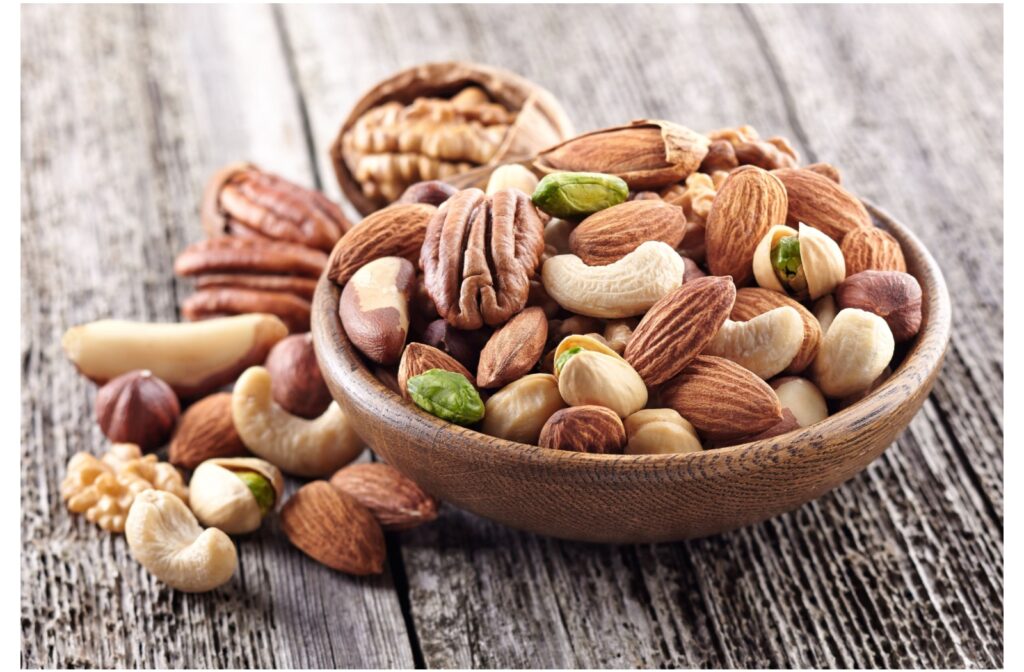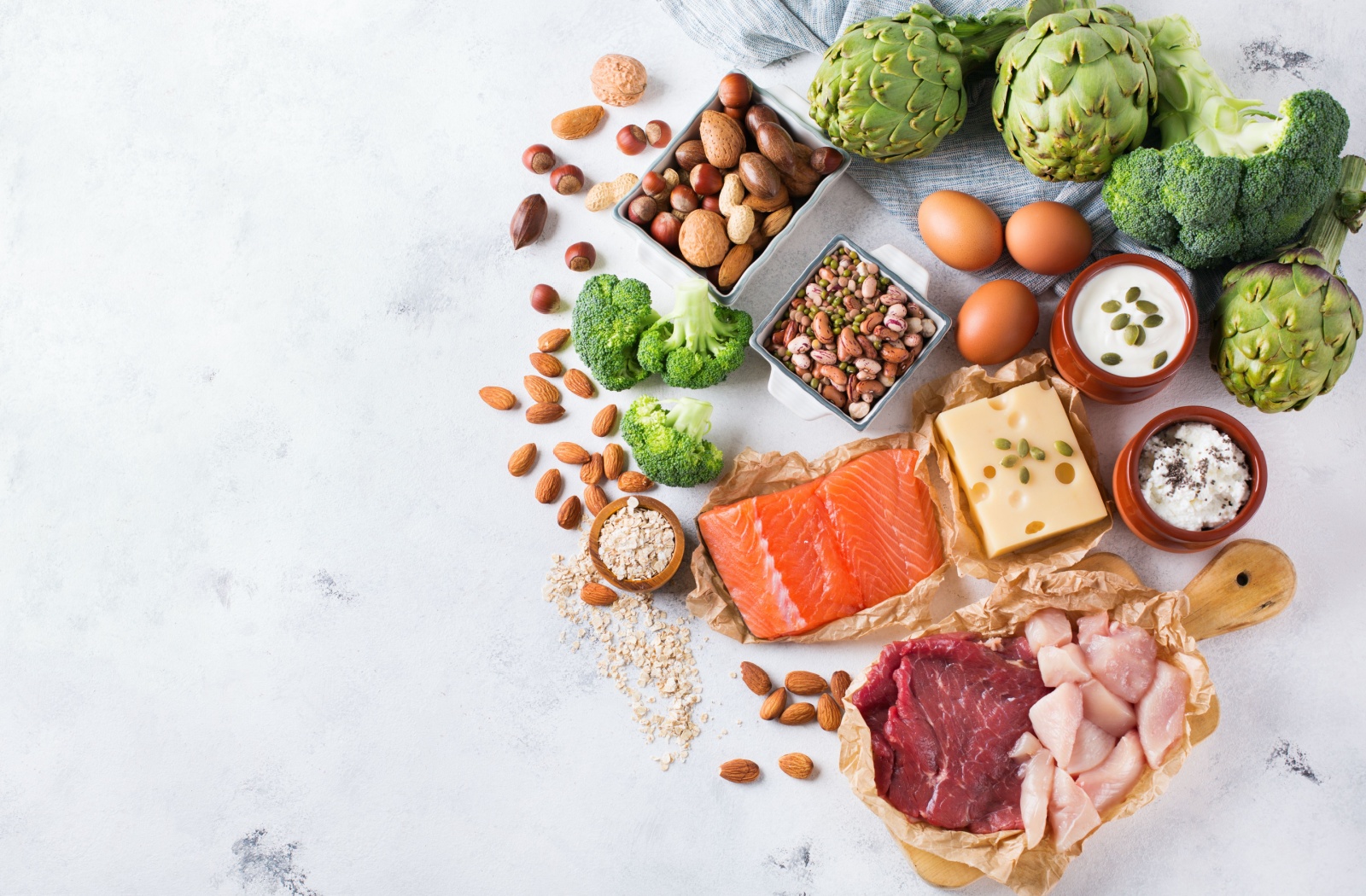Meals should not just nourish the body—they should feed the soul. You deserve a nutritious and delicious dining experience crafted by professional chefs who cater to your dietary needs and offer selections for varying tastes.
A well-balanced diet, rich in protein, helps build muscle mass, sustain energy levels, and promote overall health and well-being.
Good sources of protein include:
- Dairy
- Eggs
- Fish
- Lean meats
- Soy
- Plant-sourced protein
- Nuts and seeds
Why Is Protein Intake Important?
Protein is important at any age. However, for older adults, it’s vital for muscle health and helps maintain physical independence and quality of life. As we age, we can lose muscle mass, strength, and function—protein can help combat this.
Protein Needs & Challenges for Seniors
As we age, our bodies become more selective about what nutrients they absorb. Protein, especially in easily digestible forms, plays a crucial role in maintaining muscle mass and promoting overall well-being.
An estimated 38% of adult men and 41% of adult women have protein intakes below the recommended dietary allowance.
How much protein is needed? The exact amount can vary, but generally, older adults may need slightly more protein than younger individuals. The recommended daily allowance for protein is 0.8 grams per kilogram of body weight. For seniors, the amount can range from 1 to 1.3 grams per kilogram. This amount is roughly equivalent to:
- 3 ounces of cooked chicken or fish
- A combination of half a cup of cottage cheese and a handful of almonds
- 2 large eggs and a protein-rich yogurt
The Best Protein Sources for Seniors
You can get protein from animal and plant-based sources.
Dairy
Dairy products like Greek yogurt and cottage cheese offer a convenient protein punch. They’re also tasty and versatile. For a protein boost, add a dollop of yogurt to your morning oatmeal or blend cottage cheese into a smoothie.
Plus, many lactose-free and low-fat options make dairy a great protein choice for most dietary needs.
Eggs
Eggs are a breakfast staple for a reason! They’re a budget-friendly source of high-quality protein, essential for maintaining muscle mass and keeping you energized throughout the day.
What makes eggs even better? Their protein is packed with all the essential amino acids your body needs to function properly.
Fish
Salmon, tuna, and mackerel are all excellent sources of protein, helping you stay strong and energized. They are also packed with omega-3 fatty acids, which are beneficial for keeping your heart happy.
Lean Meats
Chicken and turkey are packed with high-quality protein to support muscle health, and because they’re lean cuts, they’re also lower in saturated fat. This makes them a win-win for maintaining overall health as you age.
Soy
Tofu is a great plant-based protein option. A quarter-cup serving packs a 7-gram protein punch. It also easily absorbs flavors and works well in various dishes, making it a flexible addition to vegetarian or vegan meals, or even scrambled eggs.
Plant-Based Protein Sources
Beans, peas, and lentils are all vegetarian champions when it comes to protein content. They’re also packed with fiber and other essential nutrients. For another plant-based protein option, consider quinoa. Just one cup offers a whopping 8 grams of protein, making it a filling and nutritious addition to your diet.
Nuts & Seeds
Snacking smart is key, and nuts and seeds like almonds, walnuts, pumpkin seeds, sunflower seeds, and peanut butter are fantastic options. They’re loaded with protein to keep you feeling satisfied, plus healthy fats that contribute to overall well-being.
Just remember, because they are calorie-dense, moderation is key! A small handful provides a protein and healthy fat boost without going overboard.

Tips for Incorporating More Protein into Your Diet
Here are some practical ways to maximize your protein intake and keep your body strong:
- Snack smarter: Replace empty calorie snacks with high-protein options like Greek yogurt, cheese, or a handful of nuts.
- Start with breakfast: Kick off the day with a protein-packed meal to set the stage for eating well. A morning meal of eggs and yogurt can be invigorating.
- Balanced plating: Aim for meals in which at least a quarter of the plate is devoted to a high-quality protein source and the rest to colorful fruits or vegetables and whole grains.
- Hydrate: Protein digestion requires water, so staying hydrated can enhance how your body processes protein.
- Medication management: Some medications can affect appetite or nutrient absorption, so it’s essential to be aware of these interactions and plan your diet accordingly.
- Culinary experiences: Using different spices and cooking methods can make meals more enjoyable, especially if your tastes change or you have a dwindling interest in eating.
Eat Well, Live Well
At Somerby Sandy Springs, we believe in the power of delicious and nutritious food to support a fulfilling and active life. Our culinary team creates mouthwatering meals packed with protein-rich options to keep your taste buds happy and your body strong.
Beyond delicious food, Somerby Sandy Springs is dedicated to promoting your well-being in all aspects. We offer a range of lifestyle options that encourage physical activity, social engagement, and emotional well-being.
Contact us today to schedule a tour or learn more about how we support a vibrant and healthy life.











